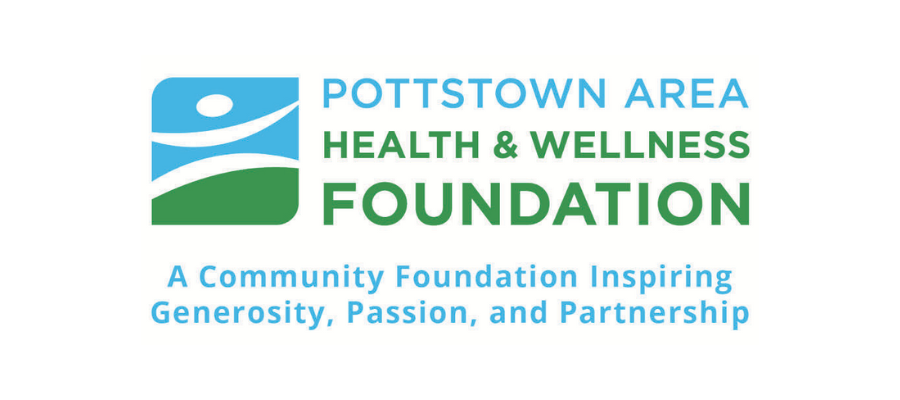Exercise to Help Allergies & Asthma
If you suffer from allergies and exercise-induced asthma, you still can benefit from a healthy fitness routine. In fact, many workouts approved for those with asthma and allergies help ease symptoms. May is National Asthma and Allergy Awareness Month and Physical Fitness and Sports Month. It is time to recognize these two can be observed together. Pottstown Area Health & Wellness Foundation (PAHWF) shares how to exercise to clear your head and strengthen your lungs.
Breathe Easy

Some asthma sufferers avoid physical activity because exercise may trigger their asthma. However, asthma is more commonly onset by allergies during certain seasons. (Hello, pollen-blooming springtime!) Cardio conditioning through aerobic exercise actually can strengthen the lungs to make their work easier.
Exercise also improves circulation, which helps the body more quickly remove waste, including allergens, from your system. It can reduce the overall inflammation caused by allergies as well. Exercise relieves stress and boosts mood, which eases all forms of chronic suffering. Everything feels worse, even itchy eyes, when you are one email away from burnout.
You can breathe easily about exercise, even during sneeze-and-wheeze season. It may be your best non-drowsy remedy.
Get a Plan
Before you begin a new workout or join a sports team, have a routine physical with your primary care provider. If you need a physician, visit the CHDC, a grantee of PAHWF that provides affordable health services for the entire family. Once your doctor evaluates you to officially diagnose asthma/allergies, an asthma treatment plan can be created. This physician-approved plan will include a combination of identifying triggers, monitoring lung function and symptoms, and medication.
An allergy treatment plan and controlled symptoms will allow you to determine your best exercise program. Many competitive athletes succeed despite their asthma. Being able to control symptoms, and consistently monitoring them, allows safe physical exertion. With proper care, this exertion can continue to increase to improve symptoms and overall quality-of-life.
Exercise Smarts
Follow basic guidelines that apply to everyone:
- Discuss the best exercises with your doctor based on your current condition. Set goals with small-but-steady steps to reach them.
- Adapt your fitness routine to meet your needs. Exercising when fatigued or overdoing it can exacerbate allergy symptoms.
- Stay hydrated. Water breaks give you a breather and moisten a dry, irritated throat.
- Easy, simple movements increase circulation without stressing the body. Keep moving to flush allergens from your system and decrease inflammation.
- Always warm up with stretches and light cardio.
- Exercise indoors during peak-pollen times (late morning and midday). This conditioning will help you tolerate allergens when you return outdoors.
- Monitor air quality; visit AirNow for the Air Quality Index. This site also provides tips on minimizing health issues from air pollution, including smoke and ozone.
Fun Opportunities
Celebrate physical fitness all summer long at Pottstown Play Streets. Every Thursday from June to August streets near parks or green spaces throughout Pottstown Borough will close to traffic. Kids and families can safely connect, play, and enjoy outdoor fun right in their own neighborhood. These two-hour events are held from 5:30pm to 7:30pm, which also happens to be when pollen counts are low.
Consider joining a local organization like the Pottstown Athletic Club, and Pottstown YMCA. Being part of a community of likeminded exercisers can help maintain momentum and accountability. It is harder to skip a workout when friends are joining you.
Consider learning some basic yoga poses (asanas) and other exercises that focus on breath like T’ai Chi and Pilates. Breathing exercises alone can calm the body, including allergy and asthma symptoms. Combined with appropriate movement, you can enhance that relief.
Enjoy outdoor activities, from hiking to boating and everything in between. Be sure not to overexert yourself. Go at a comfortable pace and respect your body’s reaction to outdoor allergens. If you have allergies and asthma, inform your companions.
Always carry your inhaler or emergency medication with you. Administer as soon as needed. If symptoms clear, proceed cautiously. If you are still suffering from asthma, or even bad allergies, get in a climate-controlled area. Seek medical help, if necessary.
A healthy, active lifestyle can be an effective part of your asthma and allergy treatment plan. Take precautions and remain mindful of your breath. Honoring your breath—and the lungs that allow it—is life-changing.
Sources
